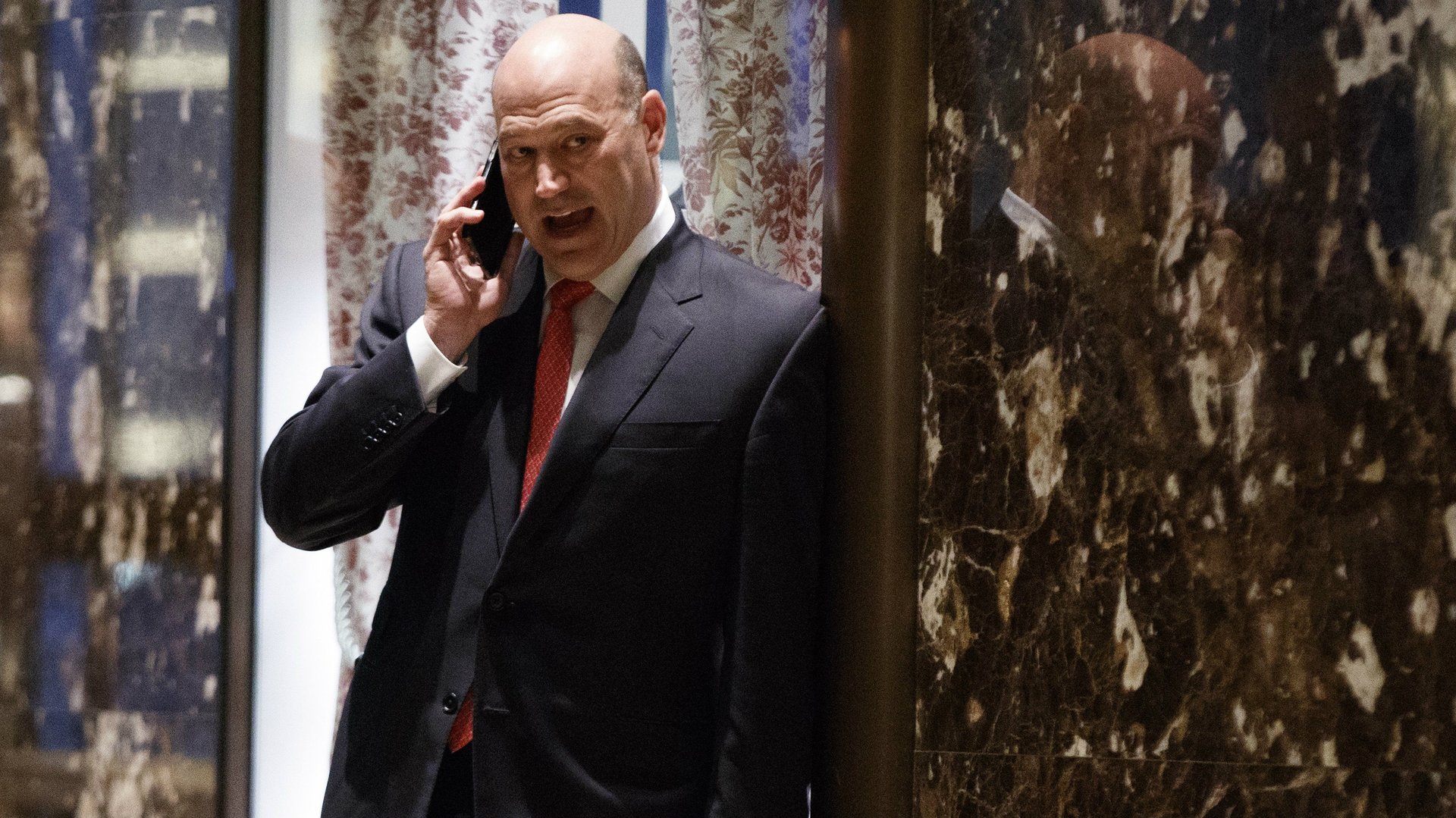Trump’s top economic advisors are, essentially, Democrats
There is something peculiar about US President Donald Trump’s economic team.


There is something peculiar about US President Donald Trump’s economic team.
Gary Cohn, Trump’s Chief Economic Advisor, is a registered Democrat and donated to Hillary Clinton’s 2016 presidential campaign. Trump’s director of the National Trade Council, Peter Navarro, ran for congress as a Democrat in 1996, and is a critic of Ronald Reagan. Prior to 2016, Secretary of the Treasury Steven Mnuchin donated three times as much to Democrats as Republicans—though he is a registered Republican.
Notice a pattern? Cohn, Navarro, and Mnuchin, perhaps Trump’s three most important economic advisors, are all Democrats or have Democratic sympathies. This would be unusual in any other administration, but given that Trump himself was registered as a Democrat from 2001 to 2009, perhaps it’s not such a surprise.
The leftish leanings of Trump’s staff underscores how blurred the lines between Democrats and Republicans have become when it comes to economic policy. The Democrats were once clearly the party of higher taxes, stricter regulation, generous government spending, and trade protection (pdf)—policies designed to appeal to a working-class base. The Republicans were the party of business owners and managers, with a platform of lower taxes, fewer rules, smaller government, and free markets.
The beginning of the end for these distinctions was the 1992 election of self-styled “new Democrat” Bill Clinton. After three consecutive election losses, the Democrats strategically shifted to a more business-friendly platform. As president, Clinton would go on to support classically Republican policies, such as welfare reform, deregulation, balancing the federal budget, and the expansion of free trade.
If Clinton challenged traditional party lines on economics, Trump has blown them up. Trump’s calls to protect social security, increase infrastructure spending, and renegotiate free trade agreements sometimes make him sound more like Bernie Sanders than Ronald Reagan. Yet at the same time, he supports standard Republican policies like financial deregulation and lower corporate tax rates.
In this context, maybe charging current and former Democrats with crafting economic policy for a Republican president isn’t so strange after all.